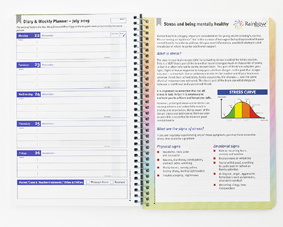The solution to fix Britain’s failing education system the 96-page report recommends
- A British Baccalaureate offering broader academic and vocational qualifications at 18, with parity in funding per pupil in both routes, and a slimmed-down set of exams at 16 to bring out the best in every child.
- An ‘electives premium’for all schools to be spent on activities including drama, music, dance and sport and a national citizen’s service experience for every pupil, with volunteering and outdoor pursuits expeditions to ensure that the co-curricular activities enjoyed by the most advantaged become available to all.
- A new cadre of Career Academies ‘elite technical and vocational sixth forms with close links to industry’ ‘mirroring the academic sixth forms that are being established and a new focus on creativity and entrepreneurialism in education to unleash the economic potential of Britain.
- A significant boost to early years funding targeted at the most vulnerable and a unique pupil number from birth, to level the playing field before children get to school. A library in every primary school.
- An army of undergraduate tutors earning credit towards their degrees by helping pupils who fall behind to catch up.
- A laptop or tablet for every child and a greater use of artificial intelligence in schools, colleges and universities to personalise learning, reduce teacher workload and prepare young people better for future employment.
- Wellbeing should be at the heart of education, with a counsellor in every school and an annual wellbeing survey of pupils to encourage schools to actively build resilience rather than just support students once problems have arisen.
- Bring out the best in teaching by enhancing its status and appeal with better career development, revalidation every five years and a new category of consultant teachers, promoted within the classroom, as well as a new teaching apprenticeship.
- A reformed Ofsted that works collaboratively with schools to secure sustained improvement rather than operating through fear and a new “school report card†with a wider range of metrics including wellbeing, school culture, inclusion and attendance to unleash the potential of schools.
- Better training for teachers to identify children with special educational needs, a greater focus on inclusion and a duty on schools to remain accountable for the pupils they exclude to draw out the talent in every child.
- New university campuses in fifty higher education “cold spotsâ€, including satellite wings in FE colleges, improved pay and conditions in the FE sector and a transferable credit system between universities and colleges to boost stalled British productivity.
- A 15-year strategy for education, drawn up in consultation with business leaders, scientists, local mayors, civic leaders and cultural figures, putting education above short-term party politics and bringing out the best in our schools, colleges and universities.
The Times Education Commission Report. The full report can be read here: https://bit.ly/3xfOoi5

 This week is not just about Safer Internet Day, it is also Children’s Mental Health Week #childrensmhw.
This week is not just about Safer Internet Day, it is also Children’s Mental Health Week #childrensmhw.